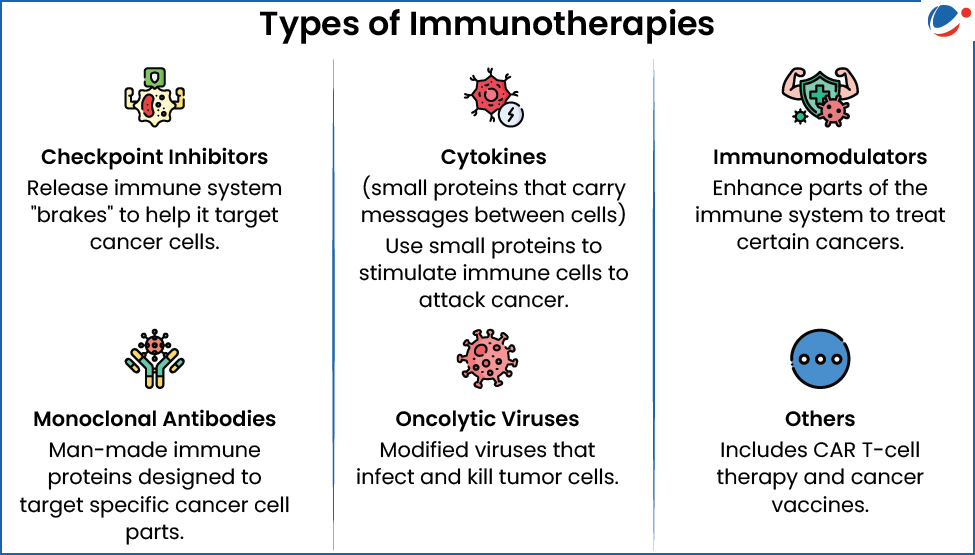The UK has introduced a faster method of administering Nivolumab (an immunotherapy drug) via a 15-minute injection, replacing the traditional hour-long IV (intravenous) drip for quicker treatment of cancers.
About immunotherapy
- Definition: Immunotherapy is a type of biological therapy that utilizes components of a person’s immune system to fight diseases like cancer.
- Biological Therapy: This treatment uses substances derived from living organisms to target and treat cancer.
- Chemotherapy: In contrast, chemotherapy directly targets cancer cells to stop their growth and spread, but it may also damage healthy cells.

- How Immunotherapy Works?
- Stimulating immune system: So that it can work harder or smarter in recognizing and attacking cancer cells. E.g., Immunomodulators.
- Creating immune system components in a lab: So as to restore or improve the immune system’s ability to find and destroy cancer cells. E.g., Monoclonal Antibodies.
Advantages of immunotherapy
- Precise: The immune system can target cancer cells while sparing healthy cells.
- Dynamic: It adapts and re-evaluates to launch new attacks if a tumor evades detection.
- Remembers: The immune system’s memory allows it to recognize and eliminate recurring cancer.
Disadvantages of immunotherapy
- Less effective for "immune suppression" and "immune exclusion" tumours due to high selectivity.
- Its effectiveness varies, making patient survival rates and prognosis uncertain.
- Treatment costs are high.



